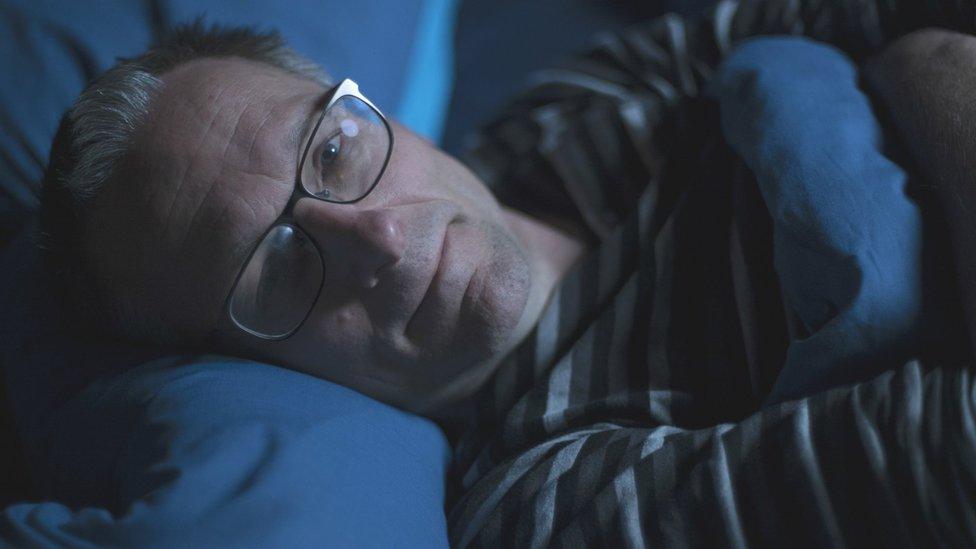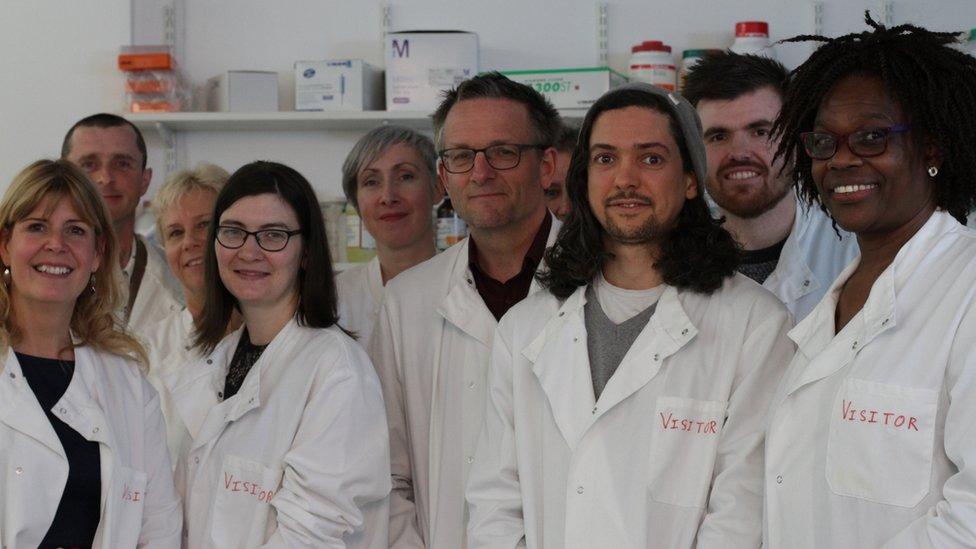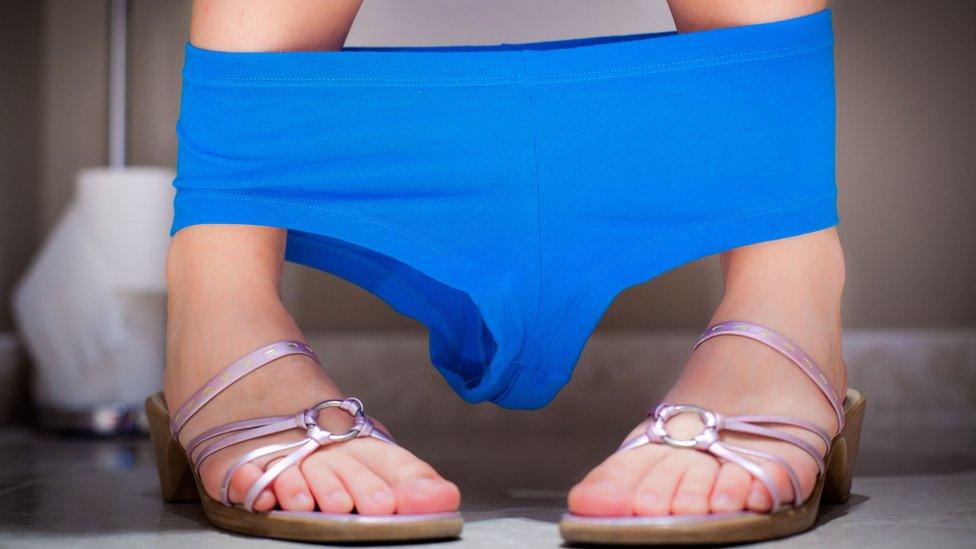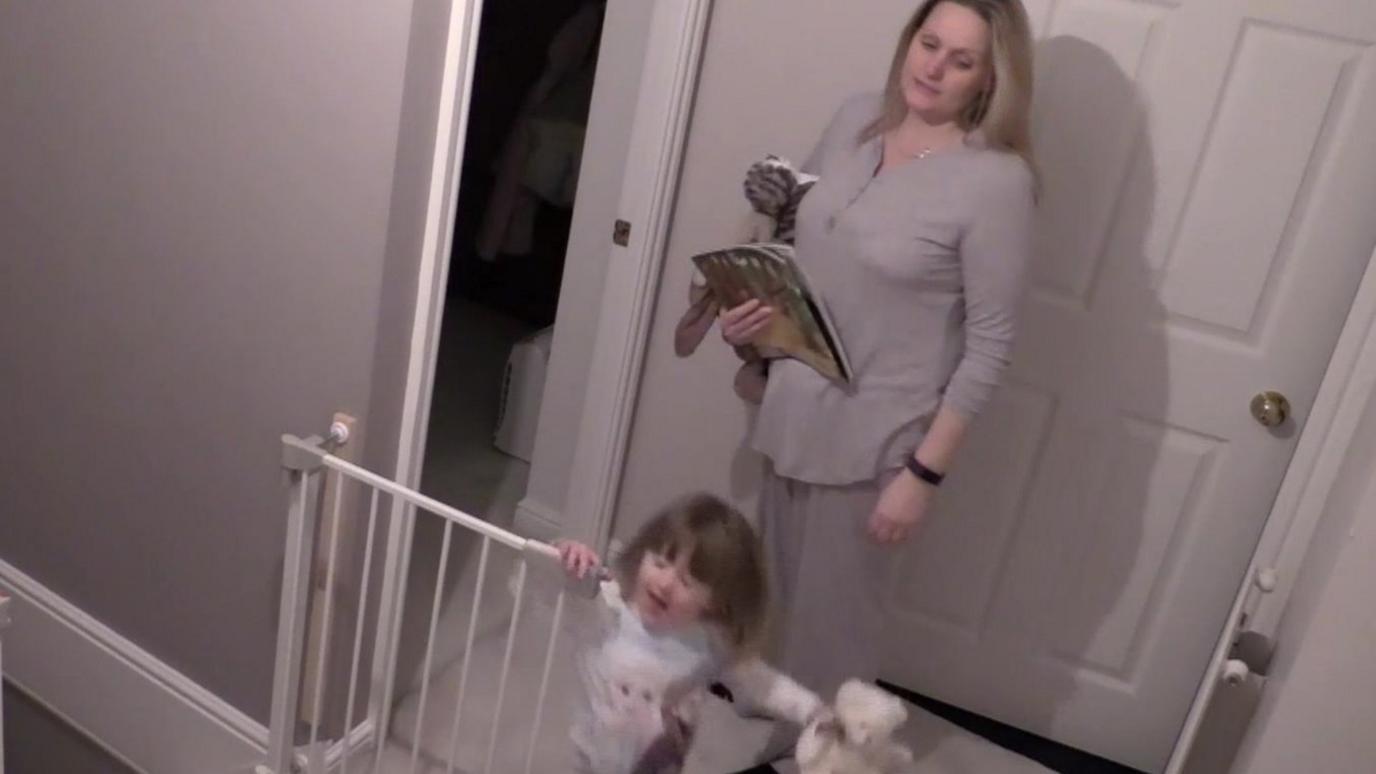Why Dr Michael Mosley started the BBC Sleep Challenge
- Published

Conventional wisdom says we should be getting at least seven hours' sleep a night, while teenagers should be aiming for more like nine hours sleep. But most of us aren't getting close to that.
A survey by the Sleep Council, external suggests only 22% of British adults get the recommended seven-to-eight hours, with 40% saying they get six hours or less.
I am one of those who struggle to get enough sleep.
It's not that I am out partying every night, nor do I have any problems getting to sleep, but I regularly wake up in the middle of the night and struggle to get back to sleep.
To find out why, I've made a documentary, The Truth about Sleep, during which I teamed up with world-renowned experts to pick apart research on sleep, and conduct some pioneering tests on willing volunteers.
What I discovered is that while there are some individuals who can get by perfectly well on less than seven hours, most of us can't.
As well as looking at the impact on our body and brain of too little sleep, one of the things we were keen to explore was which techniques to improve sleep really make a difference and which seem to be based on myth.
Eating turkey, for example, is said to help you sleep better because it contains a substance called tryptophan, which will help you sleep.
Yet turkey isn't particularly rich in trypophan, and what there is in the meat isn't likely to reach the brain, external.
The approaches we looked into ranged from the surprising to the well known. They included:
Getting up at the same time every morning
Going on a morning walk or run most days
Eating two kiwi fruit an hour before bed
Practising mindfulness
Having a warm bath or shower one to two hours before going to bed
Removing electronic devices from the bedroom and turning off all screens at least an hour before bed, including TV, computers, mobile phone and all social media
Skipping alcohol
Eating foods richer in fibre

Curious which of these approaches people would be willing to try and how they would get on, we have now created the BBC Sleep Challenge.
Our sleep challenge is not a substitute for rigorous scientific research, but hopefully you will find it useful.
To take part, simply click on the link below and then follow the instructions.
BBC Sleep Challenge: Take part, external
We will reveal the results on the 11 May.

Are you getting enough sleep?
Lie down in a quiet, darkened room in the early afternoon, clutching a spoon over the edge of your bed.
Put a metal tray on the floor, under the spoon, check the time, then close your eyes.
When you fall asleep, the spoon will fall from your senseless fingers and hit the tray with a loud clang, waking you up.
When that happens, immediately check your watch to see how much time has passed.
According Prof Nathaniel Kleitman, at the University of Chicago:
If you fall asleep within five minutes of closing your eyes, you are severely sleep deprived
If it's within ten minutes, this is "troublesome"
If you stay awake for at least 15 minutes, you are fine
A simpler approach would be to set an alarm for 15 minutes, close your eyes, then see if you fall asleep before the alarm goes off.
- Published26 March 2017

- Published4 March 2017
